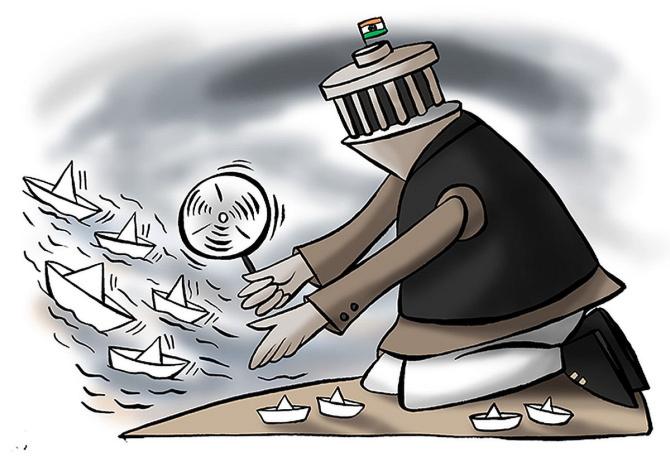India’s exports are unlikely to get an immediate boost from a depreciating rupee, which touched an all-time low on Monday, driven by rising commodity prices.

The rupee fell to 76.97 against the dollar earlier in the day, settling 1.05 per cent weaker than the previous close.
Oil prices soared to their highest since 2008 on Monday at $139 per barrel, after the US and European allies explored a Russian oil import ban, while delays in the potential return of Iranian crude oil to global markets increased supply fears.
Since Russia’s invasion of Ukraine on February 24, oil price has jumped 29.4 per cent and the rupee has depreciated 3.2 per cent.
A weak rupee should theoretically bode well for exporters, but in a scenario of weak global demand and lingering volatility, exporters are not cheering the currency dip.
Ajai Sahai, director general and chief executive officer of the Federation of Indian Export Organisations, said while rupee depreciation helped exports, contrary to the general perception, it needed to be seen in a relative term and more importantly, how “our competitor’s currency is behaving”.
“If our competitor’s currency is depreciating at a faster pace, then we may not gain in the process,” he added.
An exporter said currency volatility created far more uncertainty because exporters would not know how long it would continue.
“Exporters may want to wait for the currency to depreciate further.
"Even if they are hedging, they are not sure what call to take - whether it will depreciate further, or the currency will stabilise.
"Of course, a purely depreciating currency helps,” the exporter said.
India’s key export items such as gems and jewellery, petroleum products, organic chemicals and automobiles, and machinery items have a significantly high import content.
With rising commodity prices due to supply shortages, the cost of production for exporters will go up, affecting their margins.
“We have a lot of import-driven exports as well.
"Some sectors such as petroleum, gems and jewellery, and electronics to a large extent may not gain by movement in currency due to these sectors’ import intensity.
"But traditional sectors of India’s exports such as agriculture, carpets, and textiles may gain as they have little import content,” Sahai said.
However, another exporter said for traditional products such as garments, where the import content is much less, exporters operated in a buyer’s market where buyers demanded heavy discounts, given the depreciating currency, thus reducing the gains.
Madan Sabnavis, chief economist at Bank of Baroda, said normally exporters gained when the rupee depreciated if other currencies did not, which was not the case now.
“The risk factor for exporters is that when the currency is volatile, they cannot assume that the rates prevailing today will be the rates that will prevail in the future.
"If the currency falls further, then the exporter may be worse-off by reckoning exports at this time.
"It’s the same problem for importers,” he added.
Amid growing uncertainty due to the Russian invasion of Ukraine, exporters have started witnessing a decline in export orders from Europe.
The apparel and engineering sectors have seen the trend in the past one week.
Analysts say if the trend continues, it can have an impact on export demand in the coming months, considering that Europe is the largest export market for India.
Vivek Kumar, an economist at research firm QuantEco, said the Reserve Bank of India was likely to have intervened actively in recent days to prevent excessive volatility and ensure the rupee moved in line with other similar peers.
“The central bank would have to continue balancing forex intervention as gains from currency weakness in the form of export competitiveness would need to be weighed against adverse inflation impact,” he added.










